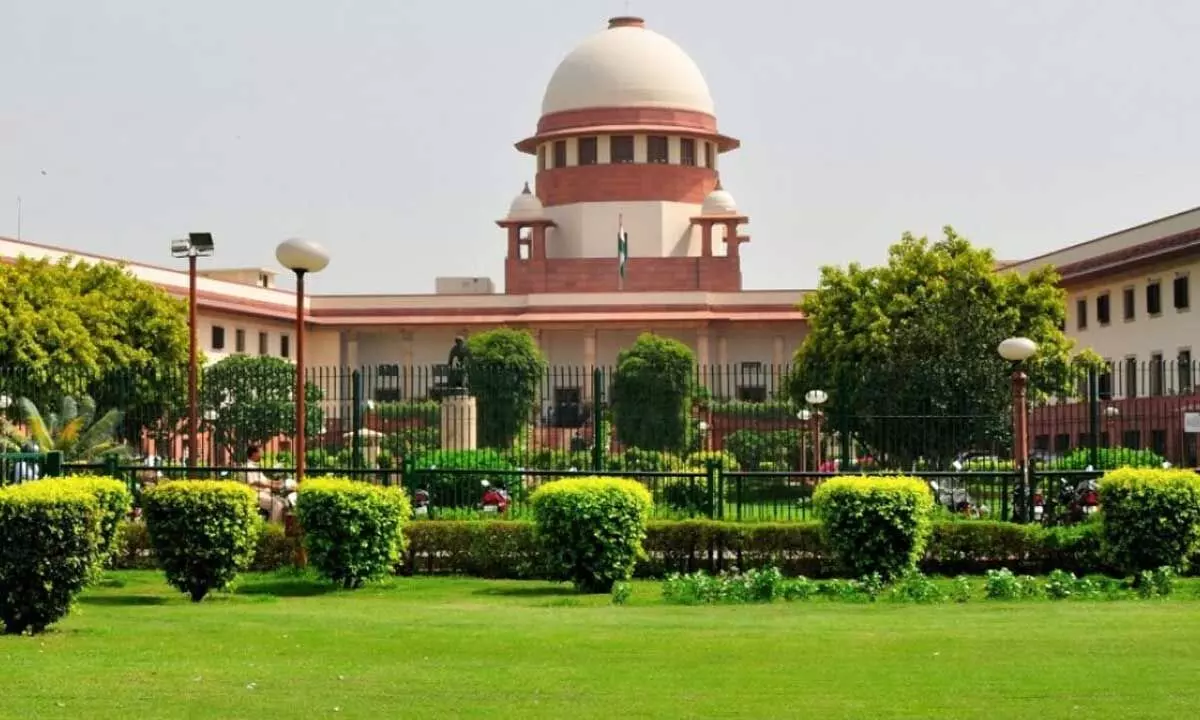Live
- Three persons admitted to hospital for diarrhea treatment
- First Star Outside Milky Way Captured: WOH G64 is 2,000 Times Larger Than the Sun
- Sikkim govt to constitute state Niti Ayog: CM Tamang
- CBI books Rajasthan narcotics inspector for Rs 3 lakh bribe
- Rajasthan bypolls: A tough contest between BJP and Congress
- Albania joins SEPA, paving way for EU integration
- Japanese government approves 250-billion USD economic package to ease price pain
- Six pharma companies to set up their units in Telangana
- The Unstable Events of a 17-Wicket Day in Perth: India vs Australia
- Dutch FM's Israel trip cancelled after Netanyahu's arrest warrant
Just In
Kids with special needs suffer govt neglect


Supreme Court
The Supreme Court questioned the Uttar Pradesh government the other day over its insensitivity in the appointment of teachers for students with special needs.
The Supreme Court questioned the Uttar Pradesh government the other day over its insensitivity in the appointment of teachers for students with special needs. It further asked it to display 'Ultra-Sensitivity' in the matter instead of sleeping over the same. The issue came up over the delay in the recruitment of 12,000 teachers for the students that has been pending with the government for long. It is time governments, both at the Centre and in the States, consider the necessity to appoint special educators at all levels in schools and colleges.
It is a fact that several such students don't even go to schools due to the financial condition of their families. That is a tragedy we should all acknowledge. In this second largest populated and second biggest democracy, interestingly, only 25% of its population lives in urban areas which translates into a majority of the nation living in rural settings where resources can be limited and educational opportunities are less available. In the last 15 years, however, India has become an increasingly developed nation as she has pursued technology ventures and global business opportunities. As the double income groups increase in urban centres, too, the demand for educating special children gets shriller.
However, historically, the people of India have not looked to government programmes for support. Families take care of themselves without depending on the state for assistance. This self-dependence has become inherent to the family system here. As long as the joint family system flourished it was never a problem in handling such children to some extent. But now working outside the home to help provide more for the family is the norm. This question is especially difficult for parents in urban areas who may not have extended family support for their children because grandparents and relatives live back in the rural areas. For these families, they must depart from custom and look outside their collective support structures for help. Other families face challenges related to illiteracy especially in rural areas, where most of the population lives.
When examining the context for educational services for children with disabilities, it is important to keep in mind the issue of schooling in general. Present estimates place the number of school age children at around 200 million. Nevertheless, perhaps as many as 40 million of these children are not being schooled or schooled very little, according to reliable statistics. This reality is due to lack of infrastructure and necessary resources. The challenge to provide education for children with disabilities is then part of the larger difficulty of providing schooling for all students. Thus, India is working to implement a special education system with the same limitations that also hinder universal education.
It is difficult to find a clear estimate of the number of school age children who have disabilities. Some place the number around 12 million students. Can the Delhi government prove it has taken any care in appointing the required special teachers for students with special needs? Or, AP? This is a State where a 'Nadu-Nedu' programme is on. Telangana government, too, says it is revolutionizing the health and education sectors. Is that really so? Can these and other governments truthfully admit their contribution to the development of children with blindness, low vision, leprosy-cured hearing impairment, mental illness,
locomotor disability, and intellectual disability?

© 2024 Hyderabad Media House Limited/The Hans India. All rights reserved. Powered by hocalwire.com






